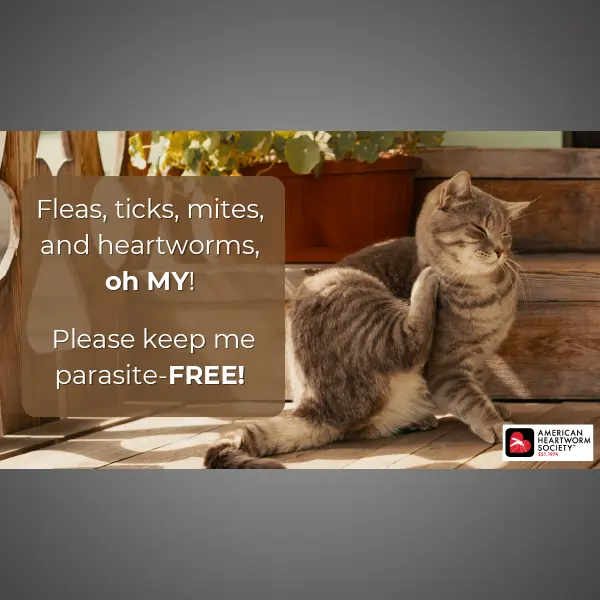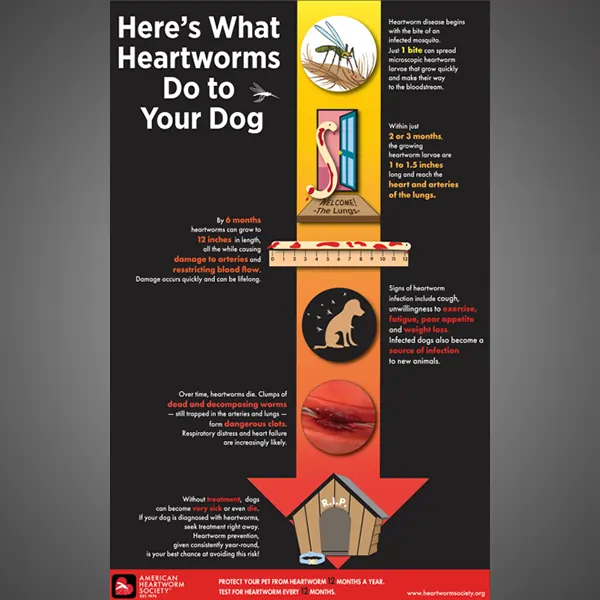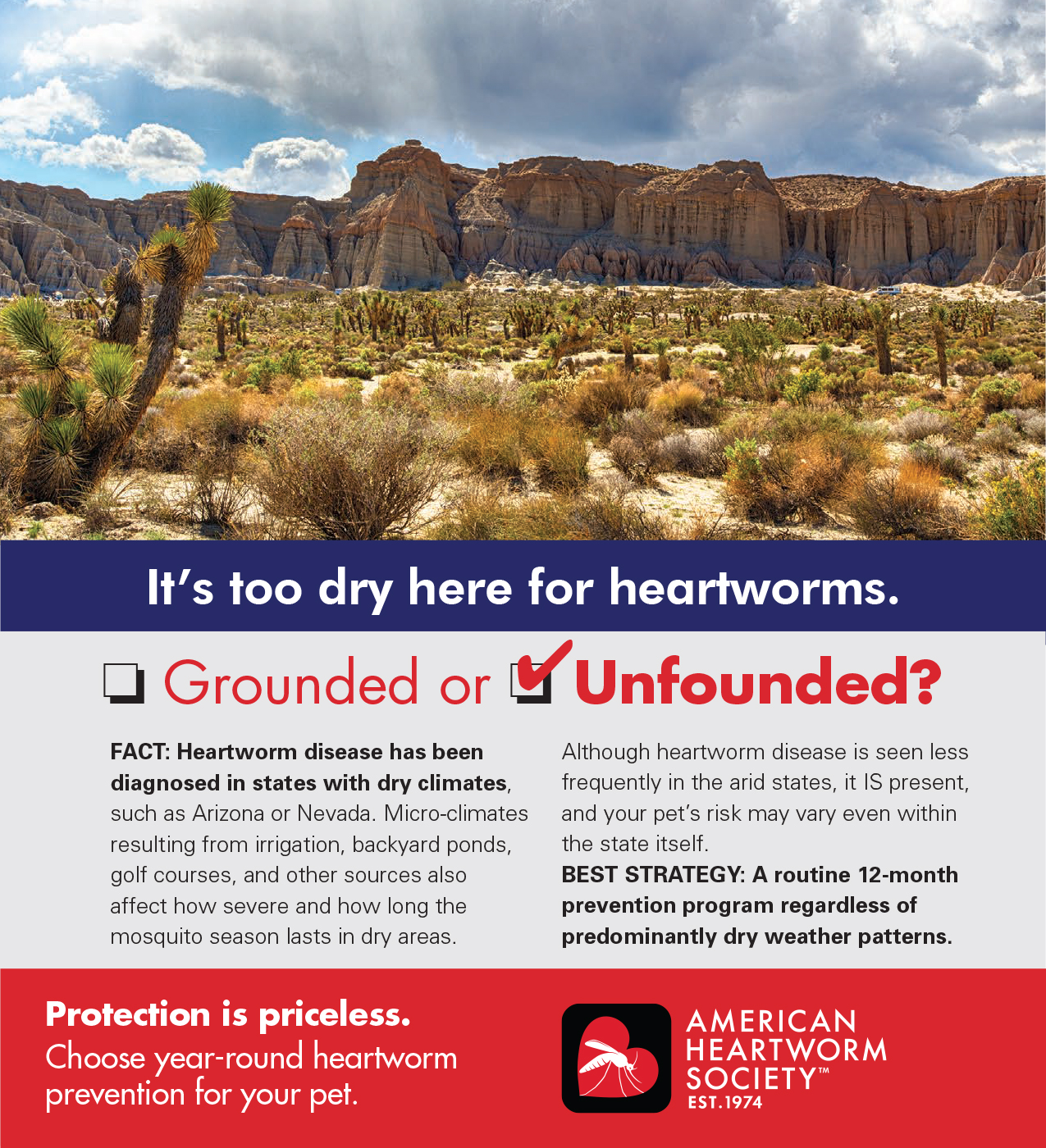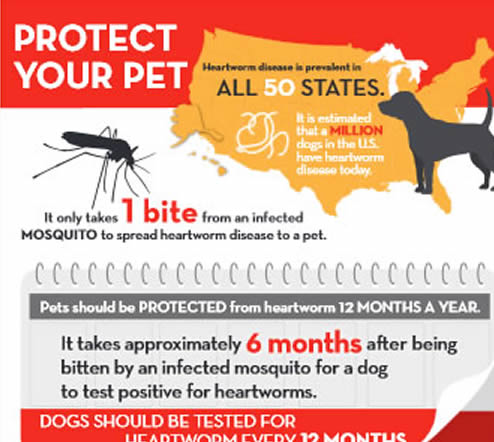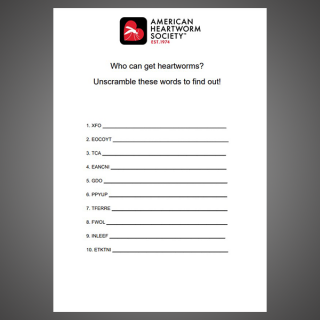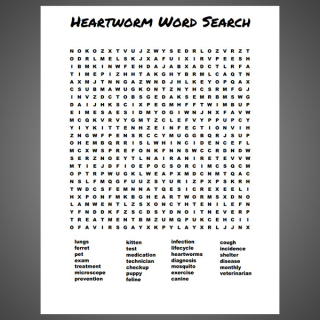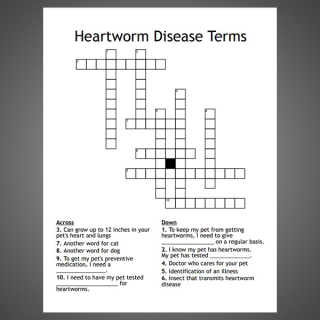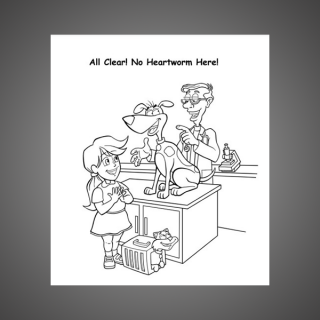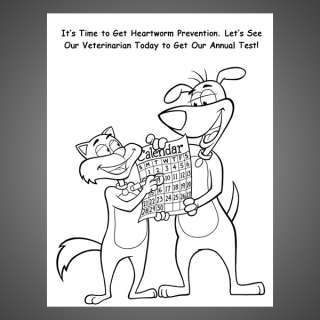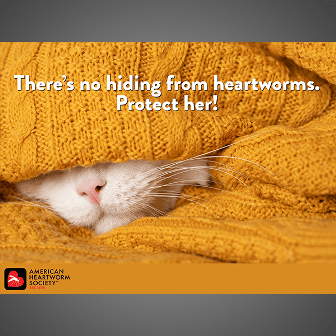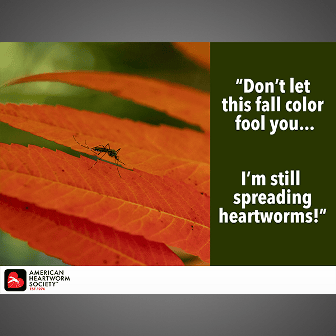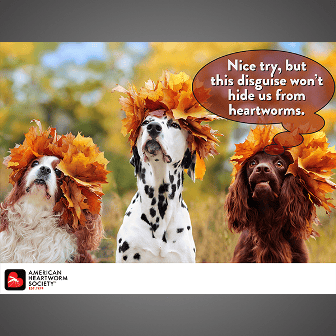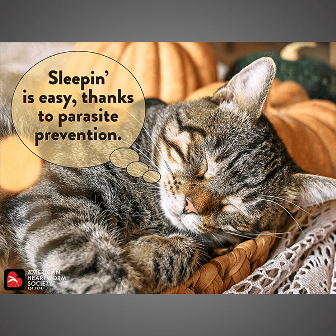The AMERICAN HEARTWORM SOCIETY respects and protects the privacy of users of any AMERICAN HEARTWORM SOCIETY web site (hereinafter "Site"). This Privacy Policy discloses how we collect and use information on the Site, and the choices that you can make about the way your information is collected and used.
1. INFORMATION COLLECTION AND USE
Portions of the Site may require that users who wish to contact the AMERICAN HEARTWORM SOCIETY to request information provide personally identifiable contact information. The AMERICAN HEARTWORM SOCIETY uses the information you provide to respond to your request. The AMERICAN HEARTWORM SOCIETY keeps this information on file and may use this information to contact users in the future. Users purchasing AMERICAN HEARTWORM SOCIETY products online are also required to provide personally identifying information, including credit card information. The AMERICAN HEARTWORM SOCIETY uses this information to process and identify each user's order. The AMERICAN HEARTWORM SOCIETY keeps personally identifiable information provided by users on file, and may use this information to contact users in the future.
The AMERICAN HEARTWORM SOCIETY does not now, and never will, sell or rent personally identifiable user information collected about or from our users. In the event that The AMERICAN HEARTWORM SOCIETY sells or is acquired by another business concern, in whole or in part, The AMERICAN HEARTWORM SOCIETY may transfer user information in conjunction with such sale or acquisition, at which time the policy controlling sale or rental of user information may change.
The AMERICAN HEARTWORM SOCIETY reserves the right to access and disclose personally identifiable information as it deems necessary to protect the Site, the content of the Site, or at the request of competent court authorities or law enforcement agencies.
The AMERICAN HEARTWORM SOCIETY collects non-personally identifiable information when visitors access the Site. The AMERICAN HEARTWORM SOCIETY does not link this anonymous information to personal information. The AMERICAN HEARTWORM SOCIETY uses this non-personally identifiable information in aggregated form for the purpose of improving its products and services.
The AMERICAN HEARTWORM SOCIETY does not report, provide, rent or sell online subscription service usage information except as required by competent court authorities or law enforcement agencies. Usage information can include, but is not limited to, login date and time information, amount of time spent online, number of pages visited, number of exams or lessons completed, and scores achieved during exams.
2. PRIVACY STATEMENT CONSENT OR OPT-OUT
Users who provide information requested by the Site, or who continue to use the Site after having an opportunity to review this Privacy Policy, thereby consent to the terms of this Privacy Policy and to the AMERICAN HEARTWORM SOCIETY's use of the information it collects as described in this Privacy Policy. Those who do not agree to this Privacy Policy may not use the Site.
The AMERICAN HEARTWORM SOCIETY reserves the right to modify this Privacy Policy at any time without giving prior notice. If there are material changes to this Privacy Policy, the AMERICAN HEARTWORM SOCIETY will post such changes on the Site. Use of the Site following any such modification constitutes agreement to follow and be bound by the Privacy Policy as modified.
3. ACCESS TO AND CORRECTION OF USER INFORMATION
Users may request access to the data the AMERICAN HEARTWORM SOCIETY has collected about them by sending an e-mail request to Customer Service. After review, if users believe an error has been made, they may request that the information be corrected by submitting a request to Customer Service. The AMERICAN HEARTWORM SOCIETY will correct the error upon adequate verification in its sole and absolute discretion. The AMERICAN HEARTWORM SOCIETY will take reasonable steps to verify a user's identity before granting access or making corrections.
4. DATA INTEGRITY/SECURITY
The AMERICAN HEARTWORM SOCIETY has taken security measures to protect against loss, misuse or alteration of payment and other information under the AMERICAN HEARTWORM SOCIETY's control in accordance with standard business practices.
5. MISCELLANEOUS PROVISIONS
The Site is not intended for children. Users under eighteen (18) years of age are prohibited from posting or providing any personal information on the AMERICAN HEARTWORM SOCIETY web site. The AMERICAN HEARTWORM SOCIETY relies on users to comply with the provisions of this paragraph.
The Site may contain links to other web sites. Please be aware that other web sites that may be accessed through this Site may collect personally identifiable information about users. The information practices of those third-party web sites linked to this Site are not covered by this Privacy Policy.
Under no circumstances shall the AMERICAN HEARTWORM SOCIETY be liable for any damages, including, but not limited to, special, incidental, consequential or exemplary damages, that result from the use of information or materials posted to or collected as a result of the user's accessing the Site, even if the AMERICAN HEARTWORM SOCIETY has been advised of the possibility of such damages.
6. CONTACT INFORMATION
Users wishing to access or correct any personally identifying information may contact the AMERICAN HEARTWORM SOCIETY via e-mail at INFO@HEARTWORM SOCIETY.ORG.
7. EFFECTIVE DATE
The effective date of this Privacy Policy is SEPTEMBER 1, 2014.


